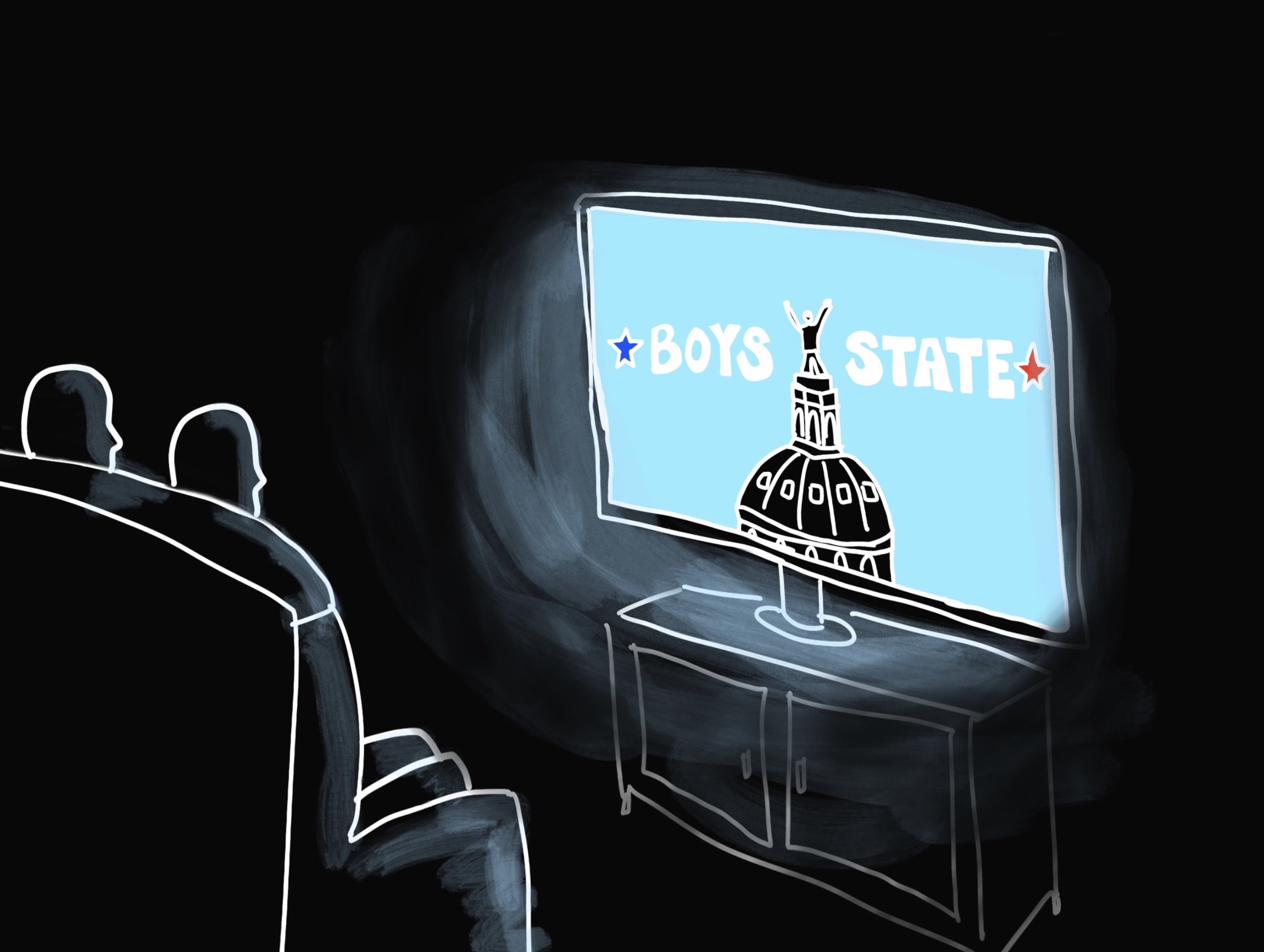“Boys State,” as explained by a former Boys Stater
September 10, 2020
 Sydney Reaper
Sydney ReaperIn July 2018, I prepared to go to the 75th Annual Florida Boys State Delegation, sponsored by the American Legion. This event is held all over the nation, with 1,000 rising high school senior boys in each state participating in mock state government. My brother had gone two years before me and didn’t exactly give me any clues as to what I should expect. Two years later, we both decided to sit down and watch the documentary “Boys State,” knowing exactly what we would see unfold.
The film depicts the 73rd Annual Texas Boys State, held the same year I was a delegate in Florida. Just a year before, the delegates at Texas Boys State decided to pass a piece of legislation that would secede Texas from the union—something I am positive served as a catalyst for the filmmakers’ interest. This event sent shockwaves through each of the Boys States in the nation: for my delegation, we were constantly warned not to even bring secession to the floor of the House; others decided it could still be possible to push the limits.
“Boys State” focuses on the main (and arguably worst) aspect of the whole event: the election process. Elections begin the day people arrive, starting with local “city” elections. As the days progress, the stakes for the race heighten, starting with the State House of Representatives, then going to the State Senate and culminating in the Governorship. Almost everyone has at least some aspiration to become the Governor at Boys State, but, for most, that dream quickly evaporates once they see their competition. The four boys that this film follows are working to win the gubernatorial election: Steven, a Bernie-loving candidate who is seen as an underdog; René, a progressive Black party chair working to unify his party; Ben, owner of a Reagan action figure and a self-proclaimed “political junkie” who looks for ways to undermine the opposite party; and Rob, the gubernatorial favorite and aspiring West Point attendee.
I remember thinking at my delegation that the majority of the group was conservative and had relatives in the military or were in a JROTC program themselves. However, watching this documentary shows that the group, in fact, contains people with a wide range of beliefs. Florida is a perennial swing state and Texas is swinging left—becoming a potentially competitive state in November—which might speak to the variety of ideas at those delegations. But the demographic acts as a sort of representation for where the country stands ideologically, since there isn’t a single place that has a completely homogeneous mindset.
This documentary puts the beauty and vulnerabilities of democracy under a microscope. “Boys State” exemplifies the young people’s hope that through government action, they are capable of eventually making a difference in the country. However, among them are those who wish to exploit the system for their own gains and those who seemingly don’t care at all. In that respect, perhaps young people aren’t different from some of our current public officials in this nation.
I was struck by a young man saying that he had “a greater appreciation for why politicians lie to get into office.” In my own experience, I found that it was more difficult to be a humble, realistic candidate than one that changes their views to appeal to a specific audience. Believe me, I lost five different elections and won only one. The campaigning experience is brutal and draining, especially because everyone comes unprepared, knowing no one. It is more memorable than the “job” that begins after the election: voting on actual legislation. “Boys State” wants to show just how overbearing dozens of elections can be and the toll they take on those involved. The actual governing feels like only an afterthought.
I had an extremely visceral experience watching “Boys State” with my brother. There are so many moments that brought me back to July of 2018, when I felt out of place but inspired to continue making the best of my week with mock government. I felt my blood boiling during some parts and immense disappointment during others, just like I had felt when I participated myself. Within this heap of hypermasculinity and cringe is a film that should be required for every voter to see. As we head to the general election in less than 60 days, “Boys State” poses the question: will it be the “vocal minority” or the “silent majority” who makes it out on top? The answer is still unclear, but maybe some truth lies in one Boys Stater’s recollection of his failed campaign: “Deep down, I think they wanted to be serious.”
“Boys State” (2020), directed by Amanda McBaine and Jesse Moss, is available on AppleTV+ and other streaming platforms.
Comments
Before submitting a comment, please review our comment policy. Some key points from the policy:
- No hate speech, profanity, disrespectful or threatening comments.
- No personal attacks on reporters.
- Comments must be under 200 words.
- You are strongly encouraged to use a real name or identifier ("Class of '92").
- Any comments made with an email address that does not belong to you will get removed.

Exceptional writing! This story brought back a flood of memories from my youth, some good some bad but necessary nonetheless. The writer is all too correct in stating this is an excellent film to watch going into what is shaping up to be a very decisive election. Looking forward to Ben Allen’s next article!